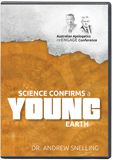Einstein Wins Again
Perspective
In September 2011, researchers in Italy caused consternation among physicists worldwide when they claimed to detect neutrinos traveling faster than light.
In very exacting experiments, scientists sent a beam of neutrinos through the earth from the Large Hadron Collider in Geneva, Switzerland, to a detector in the underground Gran Sasso Laboratory in Italy. According to very delicate measurements, the neutrinos arrived sixty nanoseconds earlier than they would have if they were traveling at light speed.
The experiment caused an uproar because all physics of the past one hundred years is based on the principle that nothing can exceed the speed of light. Confirmation of particles traveling faster than light would shake the foundations of modern physics. So it was with great relief that physicists greeted the news of a second series of experiments that used much of the same apparatus but came to different conclusions. It now appears that the earlier experiment was tainted by a loose fiber-optic cable. Further tests are being set up to confirm the new results.
This is a good example of how observable science works when properly executed.
This story is a good example of how observational science works, when properly executed. The physicists who conducted the original experiments did not simply accept the results but reported them to the scientific community at large and welcomed skepticism. In turn, other scientists set up experiments to repeat or refute the original results. Observational science is based on this principle of verification and repeatability. When researchers are willing to recognize their own fallibility and look critically at their conclusions, the whole field is advanced.
When present observations are used to explain past events that nobody can observe or repeat, even more care is needed. Science depends on presuppositions. Scientists must be careful to avoid accepting evidence uncritically just because it seems to support their presuppositions or refusing to consider anything that challenges their foundational philosophy.
“OPERA Experiment Reports Anomaly in Flight Time of Neutrinos from CERN to Gran Sasso,” CERN Press Release March 16, 2012, http://press.web.cern.ch/press/PressReleases/Releases2011/PR19.11E.html
Answers Magazine
July – September 2012
It’s impossible to explain how even one creature could evolve by chance, but in fact all life needs a complete community of other organisms to survive. The web of life had to be in place from the very start for any of us to exist. What an amazing testimony to the Creator! Also learn about animals that seem to come back from the dead, robotics, and how archaeology in Jordan confirms the Bible’s history.
Browse Issue SubscribeRecommended Resources

Answers in Genesis is an apologetics ministry, dedicated to helping Christians defend their faith and proclaim the good news of Jesus Christ.
- Customer Service 800.778.3390
- © 2024 Answers in Genesis






